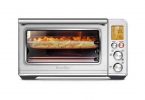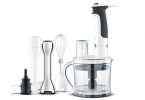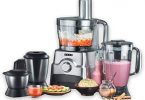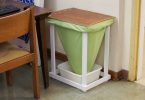Finding the Best Water Purifiers according to our needs and our budget is certainly not easy given the availability of a large number of products on the market.
No products found.
With an experienced team to find the best one, I put this list of Top Water Purifiers in India 2021 that offers the best value for money, great user reviews and ratings followed by service after-sales.
Here are the 10 Best Water Purifiers in India.
Let’s take a look at the Best Water Purifiers!
No products found.
Finding the best was next up on our list of challenges. After several hours of testing, we decided on a few models that we think are suited.
Here are the Top 10 & Best Water Purifiers in India in 2021
No products found.
Things to check before buying a water purifier
The below mentioned things should always be considered while buying a water purifier for home.
TDS Level of Drinking Water
Many people are unaware about “what is TDS level in water and how it is calculated”. Water contains many dissolved salts, impurities which should be removed before drinking. TDS levels measure the amount of dissolved salts and heavy metals like lead, arsenic, mercury present in water.
Now the question comes, how do you check the TDS level in water? TDS meters are available in the market which helps to measure the TDS level of drinking water. You can choose the suitable water purifier for your home depending upon the TDS level in the water. The below-mentioned table represents how much TDS in drinking water is safe for consumption.Show 102550100 entriesSearch:
| Level of TDS (milligrams per liter) | Rating |
|---|---|
| Less than 300 | Excellent |
| 300 – 600 | Good |
| 600 – 900 | Fair |
| 900 – 1,200 | Poor |
| Above 1,200 | Unacceptable |
Different types of Water Purification methods and technology used in water purifier
Water purifier available in the market are mainly based on three types of purification technology:
RO (Reverse Osmosis) Water Purifiers:
RO water purifiers are capable of removing all dissolved impurities from water such as heavy metals, chemicals, and dissolved salts. RO water purifiers use reverse osmosis technology in which water is passed through a semi-permeable membrane to remove the dissolved impurities. The small pore size (approx. 0.0005 microns) of RO membrane allows only the water molecules to pass through it and rejects the other contaminants. If the TDS level of water in your area is high, RO purifier is the best option for you.
UV (Ultra Violet) Purifiers:
This type of purifiers uses ultraviolet filtration process to kills germs, bacteria, viruses and other microbes. The process effectively kills microorganisms present in water. However, UV filtration doesn’t remove dissolved impurities from water. You can choose UV water purifier if your supply water does not contain any dissolved impurities. This process requires electricity the water purifiers use UV lamp to kill the microorganisms.
UF (Ultrafiltration) Purifiers:
UF water purifiers remove germs and bacteria from the water. UF purifiers come with an ultrafiltration membrane that purifies water. The pore size of UF membrane is larger than RO membrane but it does not allow any bacteria, virus, and germs to pass through it. The filtration process does not require any electricity. However, UF Filters doesn’t remove dissolved salts and heavy metals from water.
What to consider when purchasing a water purifier
When it comes to selecting and purchasing a water purifier for your home, you may want to keep a few factors in mind, so that you choose one that’s perfect for your home.
- Water quality: The first thing that you need to do is to test the quality of the water at your home. You may source your drinking water from external sources or from wells, sunk in your own home. But irrespective of where you obtain the water from, you still need to get it tested so as to obtain a clear profile of the same. You need to first determine if the water you use comes with high TDS or not, that is, does it come with enhanced salt content? And if it does, then you may want to opt for RO based water purifiers; if your water comes with muted TDS profile and is soft enough, then you can use a carbon filter based water purifier to treat the same. Incidentally, RO stands for reverse osmosis, a process that is often considered to be one of the most effective methods of removing impurities and contaminants from the water.
- Check water contamination: It is a good idea to test your water so that you will have a better idea of the contaminants contained in the same. Then, you can select a water purifier that is known to be quite effective in removing these contaminants so that you can have access to 100% clean drinking water.
- Storage capacity: Another important factor that you may want to consider is the storage capacity of the water purifier. It should be enough to meet your daily needs quite effectively. For example, let’s say that your whole family needs to have access to at least 5 gallons of clean, drinking water each day. In that case, you would need to go for a water purifier that is not just effective in purifying the water but also comes with a storage capacity of 5 gallons, which should help you meet your family’s current need for the whole day.
- Maintenance: It is important that you maintain your water purifier by cleaning it regularly. It would be a good idea to go in for a water purifier that also offers regular maintenance calls and a change of cartridges at least once a year. This should ensure that your water purifier continues to function seamlessly and without a hitch.
- Warranty: It goes without saying that you need to go in for water purifiers that come with the required warranty. This can vary from one purifier to the next, so choose one that provides you with a complete warranty and has also gotten rave reviews from other customers as well.
- Cost: The price tag is an important metric as well and one that you need to seriously consider. A few water purifiers come with all the advanced functionality that you need but are also surprisingly affordable. So check out some of the top-ranked water purifiers that we have reviewed, check out its features and main functionalities, its price tag etc. Once you have reviewed all the water purifiers, you need to decide which sounds better to you and opt for the same, at the earliest.
Ways to Purify Water For Drinking
Purification of water can be deemed as one of the most crucial activities of today. The process is instrumental in getting rid of harmful components of tap water and making it drinkable. There are quite a few methods of purifying water and this discussion will cover a few of them.
To begin with, let us address that boiling is one of the oldest and best ways of purifying water. Boiling water for a duration of about 1 to 3-minutes will get rid of all the dissolved germs, bacteria present in the water that are invisible to the normal eye. This discussion will not take into account boiling, but will instead focus on the other available methods.
Reverse Osmosis
If you have noticed the RO label on the packaging of a purifier, it is a sign that the device uses the reverse osmosis process for purifying water. The process of reverse osmosis is pretty ingenious and relatively new.
The process is instrumental in getting rid of the larger harmful contaminants of water. The features of this purification process are as follows.
- Reverse osmosis does not require any kind of hazardous chemicals in its operation. Hence there are little to no side effects of the process.
- Unlike water purification processes like distillation, reverse osmosis is pretty energy efficient in its working.
- The systems which use reverse osmosis for the purification of water are structured with a very modular design that is easy to install. Overall the system is very simple to operate and results are good quality purification.
It is one of the best methods for the purification of water. Combined with ultraviolet ray technology reverse osmosis is one of the most relevant and contemporary water purification methods of today.
Distillation
The next water purification method is distillation. The concept of distillation revolves around the low boiling point of water. The water is heated to this boiling point and it is vaporized. The vapor is then cooled in a condenser and pure liquid water is obtained.
This is because the dissolved contaminants in water have a heavier structure and higher boiling point which prevents them from being vaporized along with the water. The features of this process are as follows.
- The process is slow since the entire quantity of water needs to be vaporised. When you consider this execution on a larger scale, the process is significantly time-consuming.
- The resources required for the execution of distillation make the process a pretty expensive one.
- You can trust the process of distillation to get rid of the heavier dissolved contaminants in water like lead, mercury, and arsenic. The presence of these in drinking water can lead to poisoning.
You can also rely on the process of distillation to get rid of other dissolved contaminants as well. It is not widely used although it can become relevant in the upcoming days owing to the introduction of cheap resources.
What are some of the reasons to purify water?
Cost-effective Process
Let us cut to the chase. Purifying your drinking water is pretty cost-effective. Now you can go for sealed bottles of pure water that are sold in the markets. Many celebrated personalities even endorse these products.
However, in most cases, these bottles are quite expensive. And if not then you need to buy a lot of them to support your daily water consumption amount.
All this can be completely avoided if you use the means of purifying water. This will guarantee enough quantity for consumption for the whole family.
Better Taste
Yes, you read that right. The contaminants dissolved in water make it hard and gives the water a quite altered taste. You might be familiar with people who complain about the different taste of water because the iron level is high.
Using the water purification techniques you can get rid of the contaminants which in turn gets rid of the altered taste of water. The chlorination process itself leaves a funky taste in the water. This is, however, a sign of its purity.
Less Time Consumption
When you have to provide pure drinking water to a lot of individuals boiling might not be the ideal means. In this scenario, a water purifier with a significantly large capacity can be of great use since it will provide enough pure drinking water for the whole family within a very short period.
Bacteria Removal
The bacteria level in water is the direct reason of water-borne diseases in individuals. These germs can attack our bodies much before the immune system can defend us against it.
The diseases are mostly seen in children and senior citizens since the immune system is pretty weak in their cases. Purifying the water gets rid of these germs and reduces the risk of contracting any of these diseases.
Glowy Skin
One of the adverse effects of consuming impure water is that it affects the skin. This leads to irritation and rashes and overall poor skin health. When you purify your water, much like the water-borne diseases you significantly reduce the risks of contracting any of the skin problems.
Pure drinking water has also been attributed to making the skin glow. It is widely recommended by doctors and celebrated personalities to even promote this benefit of pure drinking water.
Chlorine Reduction
Chlorine in water can be poisonous. It leads to most of the serious cases of water-borne diseases. Purification of water is essential to get rid of the dissolved chlorine levels from it.
Now in this article only, we have recommended the chlorination process to purify water. This should be done by mixing chlorine in the exact prescribed amount. Else it would make the water impure and in some cases even poisonous.
If your area has a water supply that is rich in chlorine, it is advised you used some of the other means to purify the water. This would ensure the well-being of everyone who drinks it.
Lead Removal
Lead is another harmful component that is dissolved in tap water. The major adverse effects that can be attributed to lead is the learning problem among children.
For the better health of your family and to avoid the problem, you need to purify your water. Select a water purifier which has the capabilities to completely get rid of the dissolved lead levels in the water. It would be ideal for your family.
Cures Constipation
If you are a fan of the sitcom “The Big Bang Theory”, you would know how adamant Sheldon is when it comes to drinking water for his regular bowel movements. Pure drinking water can help you if you are suffering from constipation. It can even help you with your regular bowel cycle.
The reasons for constipation are attributed to the harmful foods we eat and the impure water we drink. This can be easily avoided and even cured by routinely drinking pure drinking water.
Strong Immune System In Children
Childhood is a very delicate stage that forms the base for the rest of life. This is true even in the case of the immune system. The immune system of children is particularly weak and gets stronger as they grow old.
Making sure they consume pure drinking water is one of the first steps we need to take to ensure the same. If children consume impure water it adversely affects their health and makes their immune system weaker.
Reduces Headache
Yes, you heard that right. Experts claim that drinking harmful tap water can lead to a series of migraines in individuals. This is mainly attributed to a high TDS value in the water.
Using a water purifier ensures that you get rid of all these harmful dissolved contaminants from your water. Water purifiers are efficiently designed for the same and are a better option than boiling. When you start consuming pure water you reduce the chances of catching a migraine or a headache from time to time.
Better Food Quality
Most of our dishes need water to come in quantity. As mentioned before, purifying water gives it an improved flavor. This, in turn, improves the quality and taste of the food when the purified water is added to it.
Many experts suggest that you use water from water purifiers to make your food. This helps you focus more on the cooking than worrying about the risk that comes with impure water.
Best Water Purifiers Buying Guide
It goes without saying that the best water purifiers are not the flashiest, but those that have the capacity to function flawlessly within the confines of your home. It is more about them bonding fluidly with the plumbing system of your home which makes them seem to have been built specifically for you. Here are some of the things you should look out for prior to a check out:
Water type
One of the first things you shouldn’t ignore when looking to purchase a water purifier is the nature of the water source around your home. The chemical content of water varies with location. Hard water, for instance, has calcium and magnesium salts dissolved in it, and this causes furring of your kettle if the water is boiled.
Lather formation issues and the subsequent difficulty of washing of clothes are challenges that come with hard water. Soft water, usually found in rivers and lakes, doesn’t have such issues. While some water purifiers are up to the task of resolving hard water, others don’t have such capacity.
If your home depends on a hard water source like underground water and tanks, you might want to opt for a water purifier that treats hard water. Reverse Osmosis (RO) water purifiers are probably your best bet for eradicating the scourge of hard water.
Contaminants differ
The water that flows through different neighbourhoods carries distinct impurities. While water purifiers are equipped with the latest technology to cleanse your water, many would fail at the task.
As earlier reiterated, water purifiers differ in their capacity to treat water. With a simple filtration, which is popularly used across different water purifiers, some microorganisms will still find their way into supposedly ‘purified water’ and this could go undetected until you or a loved one falls ill.
Understand the mechanism of each water purifier and compare this with the water situation of your home before you make that purchase.
Availability of water
Depending on the location of your home, the availability of a water source could be crucial when opting for a water purifier.Some of these appliances require an abundance of water as they waste a great deal of water during the purification phase.
The RO type comes to mind. Its 50% efficiency wouldn’t be acceptable in a locality with insufficient water supply. You might want to keep that in mind when deciding what water purifier to buy.
Maintenance
Time is extremely precious. And most people wouldn’t want to spend their time cleaning a water purifier on a routine basis.
Believe it or not, some water purifiers require you regularly clean them up; else you’d get zero-service. The ultra-filtration water purifier falls in this category. You would have to clean its membrane on a weekly basis at the minimum if you want it to do a decent job of purifying your water.
Can you deal with that? If this is something you can’t possibly handle, then you should look at other water purifiers like the RO or the gravity-based type.
With the buying guide adequately dealt with, let’s respond to some of the questions most buyers ask regarding a water purifier.
Best Water Purifiers Brands in India
Here are some of the brands of best water purifiers in India including brief descriptions. These brands are very popular and offer really good quality products and after-sale service.
Kent

Kent was introduced in 1999 by Dr. Mahesh Gupta with its headquarters in Noida. The Reverse Osmosis (RO) technology is implemented for purification of water. The products of Kent are exported to all SAARC countries like the middle east, Nepal, Bangladesh etc. The Kent Purifiers are perfect for home and are durable. This efficient purifier is perfect if your water supply is not pure and includes impurities.
Eureka Forbes (Aquasure & Aquaguard)

It is a consumer goods company specialized in producing vacuum cleaners and is based in Mumbai, India. It was founded in 1982 and is also a part of Shapoorji Pallonji Group. Apart from vacuum cleaners, Eureka Forbes produces water purification, air purification, and home security solutions.
They sell their water purifiers under two different brand names : Aquasure and Aquaguard. Aquasure water purifier are low cost water purifiers from the company and Aquaguard is catered towards the premium segment of people are are usually higher prices. The Eureka Forbes water purifiers are quite old in the market and have gained a reputation in the market.
Pureit

Hindustan Unilever Limited Pureit is an Indian consumer goods brand engaged in producing various appliances and has its headquarters in Mumbai Maharashtra. The products include foods, beverages, cleaning agents, personal care products as well as purifiers. The Pureit water purifiers are very budget friendly and easy to use. These purifiers can be used at places where the water supply include impurities.
Blue Star

While their sight was initially set on air conditioners and commercial refrigeration, Blue Star has since expanded its horizon through their entry into the manufacturer of water purifiers. Though established in the 1940s, the company only truly settled into the business of manufacturing in the ‘60s.
Blue Star markets its water purifiers mainly under the Aristo and Majesto trademark. Though the Blue Star is quite new to the water purifier scene, the company is leaving positive footprints already.
AO Smith

With a reputation that spans generations, this American company has become a household name in the manufacturing sector. While AO Smith’s exploits in the water purifier business are amiable, the company started out as an engineering firm dedicated to creating designs for manufacturing companies.
AO Smith doesn’t only supply water purifier equipment, the American company provides its global customers including Indians with water heaters and boilers. Being the first American company to penetrate the Indian water purifier market, AO Smith has etched its name in the mind of many Indian residents.
Havells

Established in 1958, Havells is considered one of the biggest companies in India. The company has several products in the Indian market including water purifiers and heaters. Havells is so popular in India that it has about 11 manufacturing plants in the country.
Havells makes significant revenue from its global sales following its acquisition of one of the electrical biggest companies in the Netherlands. The 12 manufacturing plants owned by Havells in India makes a statement regarding their position in the market.
Livpure

In India, you might not find a company more proud of their water purifiers than Livpure. This might come as a surprise considering they produce air conditioners and air purifiers. And they have awards to show for it. With the level of attention they give to the processing and certification of poructs, it is not difficult to fathom the awards.
Now with the best water purifiers and water purifier brands in the Indian market considered, it is time to proceed to the different types of purifiers.
Final Talk about the Best water purifiers in India in 2021
The Water purifier is the most essential appliance that everyone must have in their home. We have gone through the best models of the machine, compare every feature, and prepared this list. We hope at the end of this article we are able to clear all your confusion about this device.
Just keep in mind what ate the criteria you are looking for along with your desired budget and you will end up buying the most favorable water purifier for your loved ones. If you have any further queries or suggestions about the product, do comment in the section below and we will write back to you!







Leave a Comment